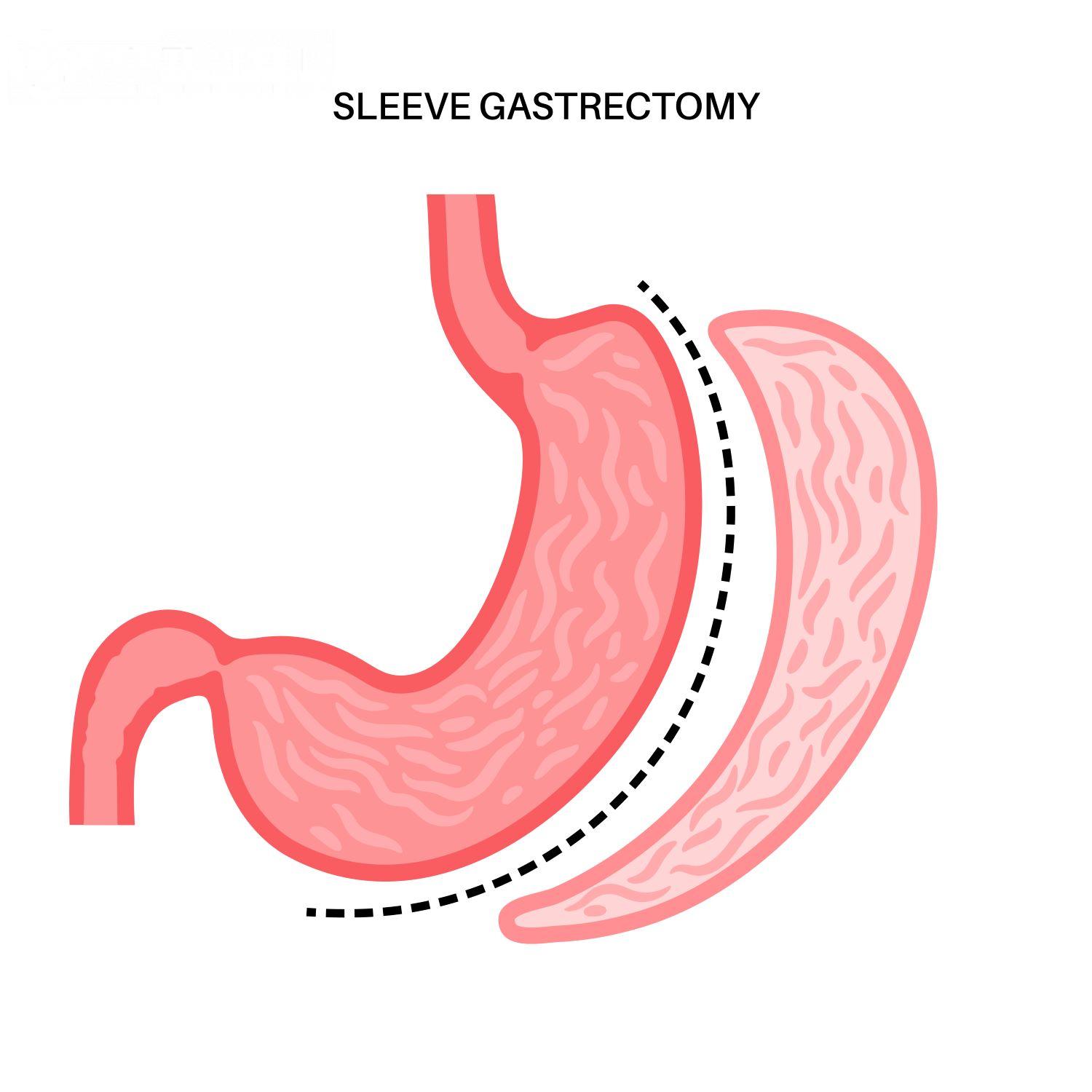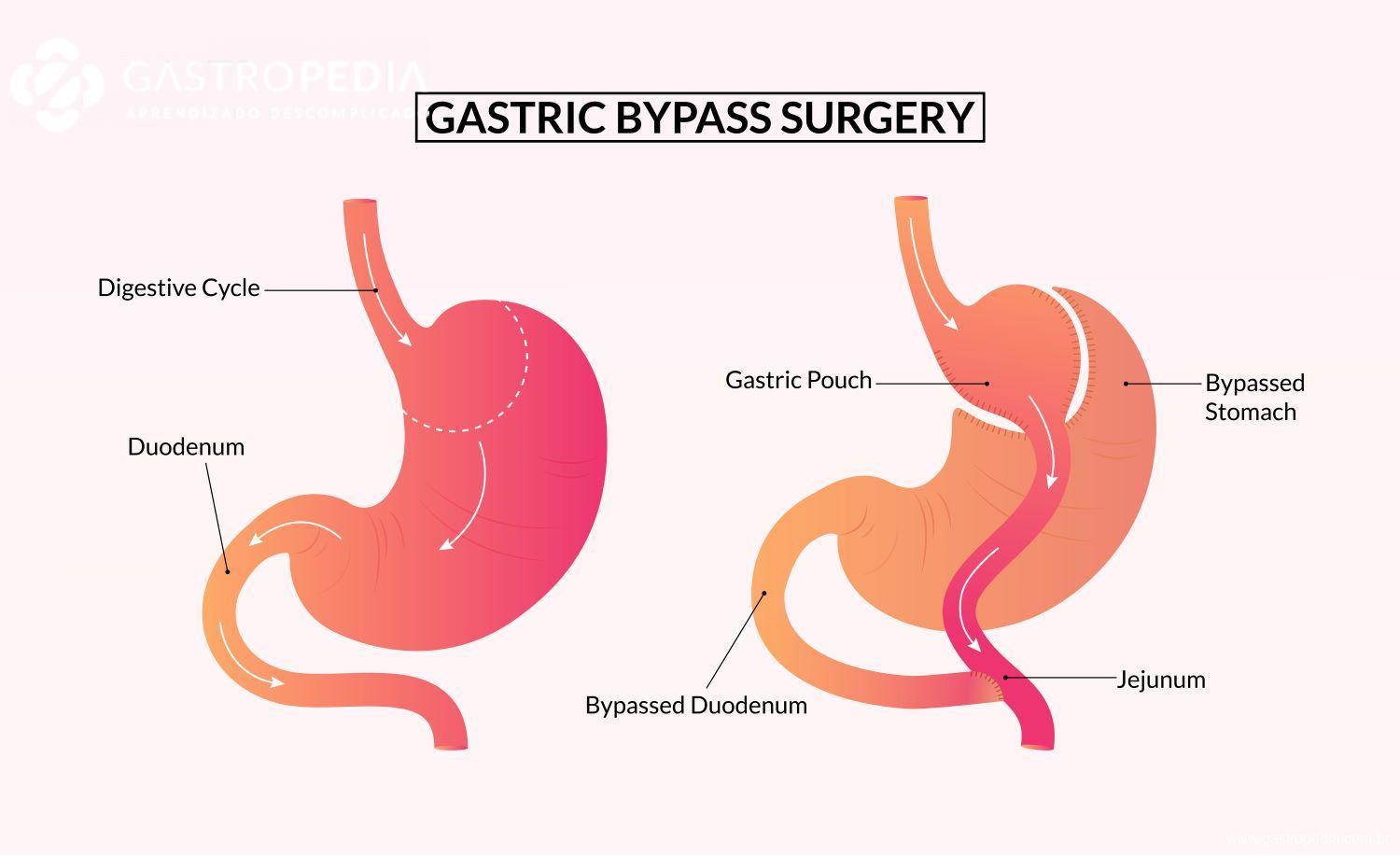Severe or morbid obesity is extremely dangerous to physical and mental health, therefore gastric reduction surgery is an option for people in this situation who have not had results even with various health treatment implementations.
The surgery can be called metabolic, since the organs involved in the procedure produce hormones, and the surgical alteration causes a hormonal balance, benefiting the obese patient in weight loss and in the control of diseases such as diabetes, hypercholesterolemia, hyperuricemia, and even hypertension (part of the plurimetabolic syndrome).
What are the types of bariatric surgery?
The types of bariatric surgery differ by their mechanism of action. Basically, they are categorized into:
Restrictive
This type of bariatric surgery is capable of reducing the amount of food that the stomach can hold. As a result, the patient feels satiated much faster and restricts the amount of food to be ingested.
It is the case of vertical sleeve gastrectomy, also known as Sleeve.

Mixed techniques (restrictive and malabsorptive)
Both techniques, when combined, also significantly decrease the amount of food that the stomach can hold. In addition, the stomach itself is reduced in size, as a short bypass of the intestine is performed during surgery.
It is known as gastric bypass surgery or Fobi-Capella surgery.

When to undergo this type of surgery?
To undergo the surgery, it is necessary:
- to have severe obesity, that is, to have a Body Mass Index (BMI) greater than 40;
- to have obesity with a BMI of 35 and diseases associated with obesity, such as diabetes;
- not to have severe psychopathological diseases, such as depression or alcoholism, to the point of being self-destructive;
- not to have problems with the heart, liver, kidney, or any other more serious disease.
Another important point is that, to undergo obesity surgery, the BMI must have been stable for 2 years, and the patient must have tried clinical treatments, such as diets, physical activities, and a complete change in lifestyle.
Main benefits of bariatric and metabolic surgery
Weight loss is the great benefit of undergoing bariatric and metabolic surgery. With it, other underlying benefits arise, such as the prevention of serious health problems. This includes heart diseases and diabetes.
In addition, other diseases that can be prevented after surgery include:
- gastroesophageal reflux disease (GERD);
- sleep apnea;
- polycystic ovary syndrome;
- joint pain;
- gout;
- heart diseases and their risk factors, such as high cholesterol and high blood pressure.
To better understand bariatric surgery and check out other health tips and endoscopy, browse the EndoBlog site!
Residência em Endoscopia Digestiva no Hospital das Clínicas da USP (HCFMUSP)
Residência em Gastroenterologia no Hospital Universitário da UFSC
Presidente da SOBED / SC na gestão 2018-2020
Médico da clínica Endogastro em Florianópolis e ProGastro em Joinville
